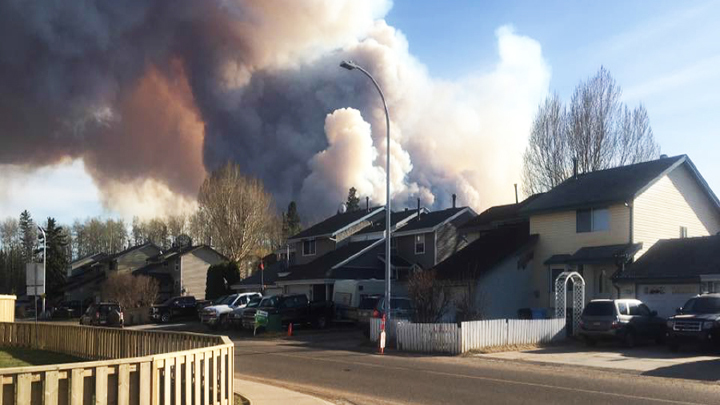
July 27, 2016

On her second day of work, safety advisor Veronika Harvey found out her neighbourhood of Thickwood was being evacuated.
Story by Andrea Martin
Safety advisor Veronika Harvey started her new job at the Northern Lights Regional Health Centre in Fort McMurray one day before the massive wildfire forced tens of thousands in the area to flee their homes.
“My first day is very much a blur,” Harvey says. “I remember walking out of the hospital after a long day of orientation and training to find my car covered in ash.”
The next day, a phone call from her teenage son was her first indication the situation was about to change.
“He called to tell me his school was under voluntary evacuation,” Harvey explains. “Fifteen minutes later, I found out my neighbourhood of Thickwood was being evacuated, so I headed home to pack up some clothes and food.
“Even when the RCMP arrived and told us to head north of the city, I didn’t think we’d be gone for more than three days.”
Harvey spent the next 22 hours checking in with her son (who was driving in his own car) via cell phone, touching base with her husband who was in Edmonton for training, and driving her car. She drove to Firebag first, one of the oilsands camps north of the city, and then had to battle bumper-to-bumper traffic when RCMP reopened Highway 63 south.
“When you’re looking forward and all you see is smoke, and when you look behind you and all you see is a wall of fire – it’s just so unreal,” she says. “Through all this, I stayed in touch with my new coworkers, particularly one who was 37 weeks pregnant and trying to rejoin her husband as she was evacuated north and he was evacuated south of the city.”
After evacuating to Edmonton, Harvey got a call asking if she’d consider temporarily relocating to Westlock to continue with orientation and training for her new role.
“I’d worked for AHS for less than a week, and my director was setting my family up in a hotel for a few days, letting me know where to find employee supports,” explains Harvey. “He even invited a few of us Fort McMurray evacuees to his home for dinner with his family.”
Over the next 30 days, Harvey and her Fort McMurray coworkers had the option of continuing to work in the Edmonton area, often moving between Alberta Hospital, Sturgeon Hospital and the Edmonton General Hospital, as space permitted.
“My coworkers and I continued to work to help keep our minds off what was happening back home,” says Harvey. “During this time, we were rarely separated. I had just met these ladies and within a day they became my family.”
Harvey and her family returned home to Fort McMurray in June, and recognizes they are a few of the lucky ones. “So many people have lost so much, and continue to be brave and positive in such a dark time.”
“It will take time for Fort McMurray to rebuild, but I have never seen a community so determined to support each other and work together.”
If you have been affected by the wildfires and need support, AHS has supports available to help you cope.
Veronika Harvey’s lessons learned from the Fort McMurray wildfire: